TRAVEL
9 Most Dangerous Airports in the World
Published
1 year agoon
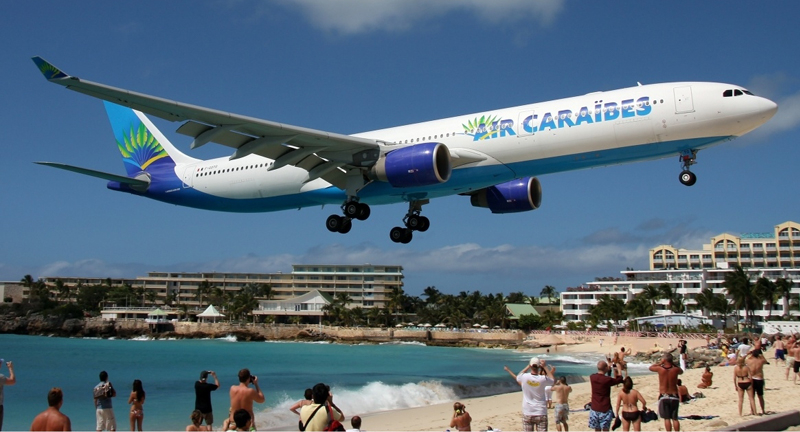
Wikipedia
Welcome to a world where the ordinary turns extraordinary, as we unveil “27 Weird Animal Facts” that will astonish and amaze you. From the deep oceans to the highest skies, every corner of our planet harbors astounding secrets, and animals play a starring role in this mysterious theater. Prepare to have your mind blown as we journey through a collection of the most bizarre, fascinating, and sometimes humorous aspects of animal life. Get ready to be surprised, intrigued, and maybe even a little bit bewildered!
Telluride Regional Airport, Colorado
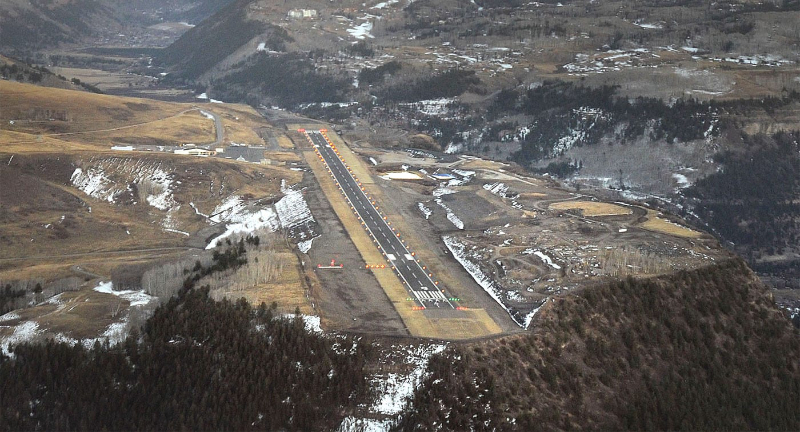
Telluride Regional Airport
Telluride Regional Airport in Colorado is considered one of the most dangerous airports in the world due to its challenging location and environmental conditions. Perched at an elevation of over 9,000 feet, it is the highest commercial airport in North America, presenting unique challenges due to thin air and unpredictable weather. The airport features a single runway that is notably short and surrounded by rugged terrain, requiring pilots to navigate complex approaches and departures. Moreover, the frequent occurrence of strong and erratic winds adds to the difficulty, making landings and takeoffs particularly hazardous at this scenic yet treacherous mountain airport.
Barra International Airport in Scotland
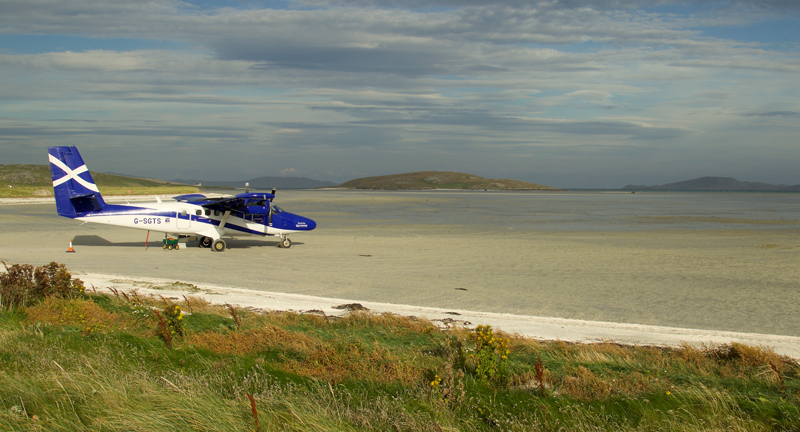
Barra International Airport
Barra International Airport in Scotland stands out as one of the most dangerous airports in the world due to its highly unusual beach runway, the only one of its kind for scheduled airline services. Located on the sandy shores of Traigh Mhòr beach, the airport’s runways are submerged under water during high tide, requiring careful timing of flights in accordance with the tidal patterns. The lack of lighting on the beach runway means that night flights are nearly impossible, adding to the operational challenges. Moreover, pilots must also contend with variable weather conditions and the potential for wildlife and pedestrian interference, making landings and takeoffs at Barra a unique and complex endeavor.
Queenstown Airport, New Zealand
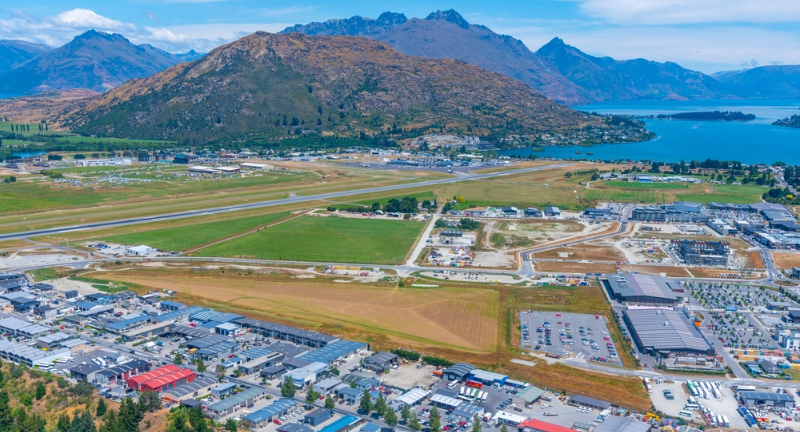
Shutterstock
Queenstown Airport in New Zealand is renowned for being one of the world’s most dangerous airports, largely due to its challenging approach through the Southern Alps. Pilots must skillfully navigate through complex mountainous terrain and often rapidly changing weather conditions to land on its relatively short runway. The airport is also subject to strong and unpredictable winds that swirl through the mountain passes, adding an extra layer of difficulty to landings and takeoffs. This combination of natural obstacles and meteorological unpredictability requires pilots to have exceptional skill and experience, making Queenstown Airport a particularly daunting destination for air travel.
Chicago Midway International Airport
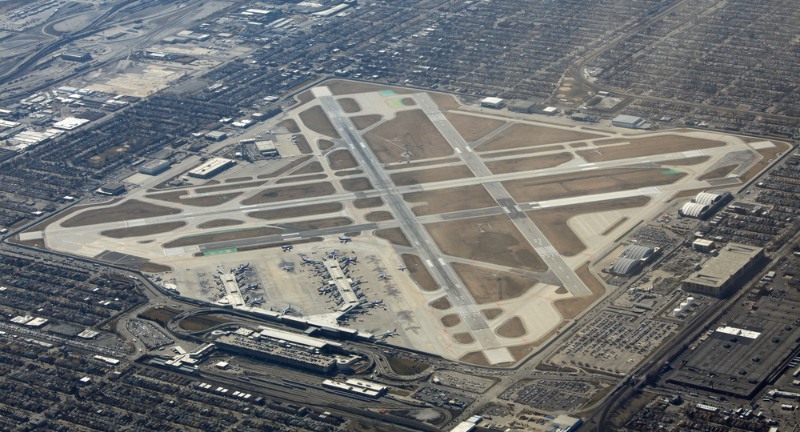
Shutterstock
The airport in Chicago is notorious for its challenging weather conditions and brief runways, posing significant challenges to pilots during takeoff and landing. The area often experiences heavy ground traffic, complicating departures and arrivals. With four intersecting runways, navigation on the ground can be perplexing for pilots. Additionally, these runways are prone to becoming treacherously slippery in winter conditions. Tragically, this airport has been the site of several fatal accidents, underscoring its reputation as a hazardous location for air travel.
Pegasus Airfield, Antarctica
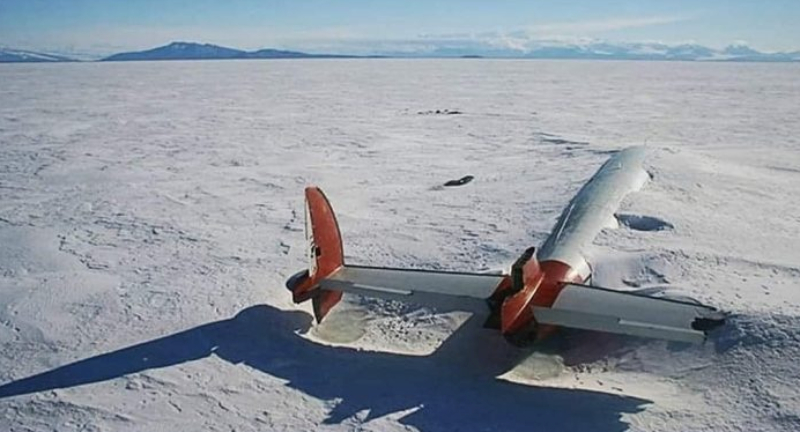
Shutterstock
Pegasus Airfield, situated in the stark and unforgiving landscape of Antarctica, stands as one of the world’s most perilous airports. This remote airstrip, blanketed in ice and exposed to extreme weather conditions, offers a unique set of challenges to aviation. Named after the Lockheed C-121 Constellation, “Pegasus,” which tragically crashed here in 1970, the airfield serves as a stark reminder of the perils inherent in polar aviation. The airfield’s icy surface and the unpredictable Antarctic weather make every landing and takeoff a high-stakes operation.
McMurdo Air Station in Antarctica
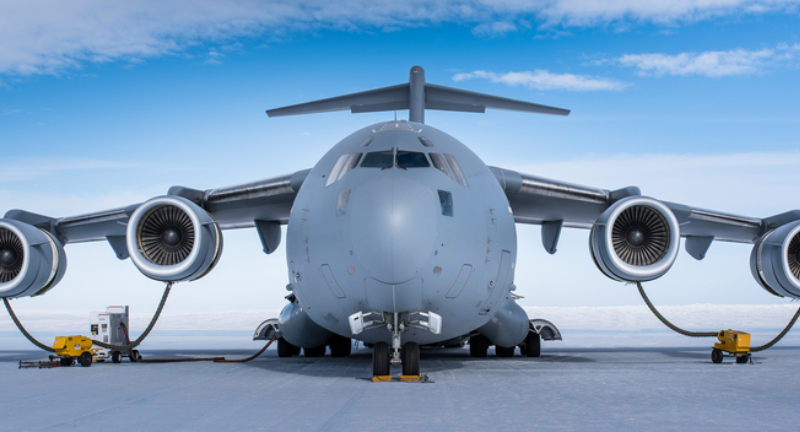
Thorntons
McMurdo Air Station in Antarctica, one of the most treacherous airports globally, confronts pilots and crews with extreme challenges. Located on the ice-covered continent, the air station faces some of the harshest weather conditions on Earth, including severe cold, high winds, and frequent whiteout situations. The unpredictability of the Antarctic climate, combined with the icy, constantly shifting runway surfaces, demands exceptional skill and caution from aviators. These daunting conditions, alongside the station’s remote location, make McMurdo Air Station a critical yet perilous gateway for scientific exploration and logistics in Antarctica.
Sitka Rocky Gutierrez Airport, Alaska
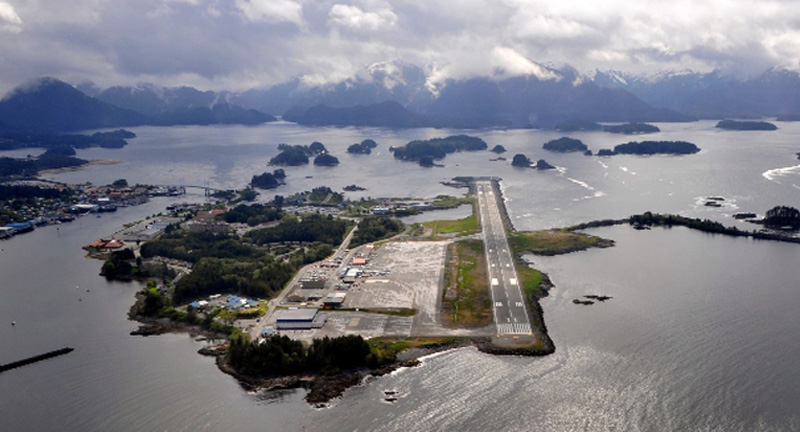
Wikipedia
Sitka Rocky Gutierrez Airport in Alaska is considered one of the most perilous airports globally due to its unique environmental challenges. Located on an island, the airport is surrounded by water on three sides, requiring precise approaches and departures over the ocean. The frequent dense fog, strong crosswinds, and sudden weather changes typical of the Alaskan climate add to the difficulty of navigating this airspace. These factors, combined with the mountainous terrain nearby, make Sitka Rocky Gutierrez Airport a demanding and hazardous location for pilots to operate.
Tioman Island Airport, Malaysia
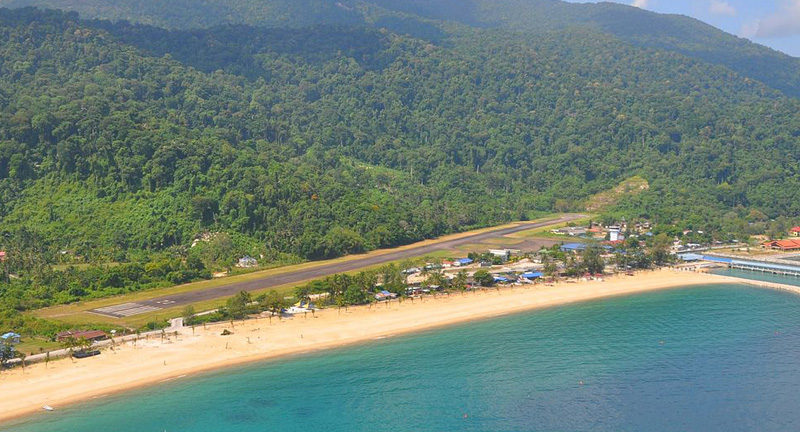
Stewart’s Shops
Tioman Island Airport in Malaysia ranks among the world’s most dangerous airports due to its challenging geographical setup and operational conditions. Nestled in a tight spot between steep hills and the South China Sea, it features a very short runway, demanding precise landings and takeoffs. Pilots must navigate a sharp turn to align with the runway while avoiding the surrounding mountainous terrain. These demanding conditions, combined with unpredictable tropical weather patterns, make Tioman Island Airport a particularly daunting airstrip for even the most experienced pilots.s.
Don Mueang International Airport in Thailand
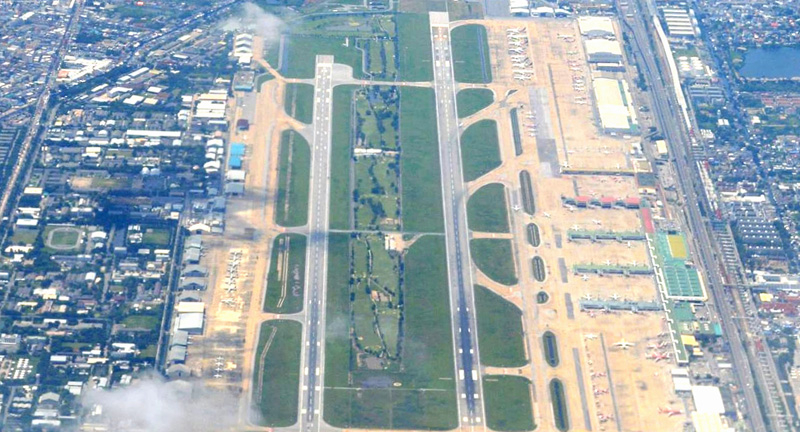
Shutterstock
Don Mueang International Airport in Thailand, while not typically classified among the world’s most dangerous airports, presents unique challenges due to its urban location and high traffic volume. As one of the busiest airports in Thailand, it handles a vast number of flights, leading to congested airspace and demanding traffic management. The airport’s proximity to Bangkok’s dense urban area requires pilots to execute precise approaches and departures to avoid overflying populated regions. Additionally, the tropical climate of the region brings about sudden weather changes, including heavy rainfall and thunderstorms, which can complicate flight operations and add to the airport’s operational complexities.
Conclusion
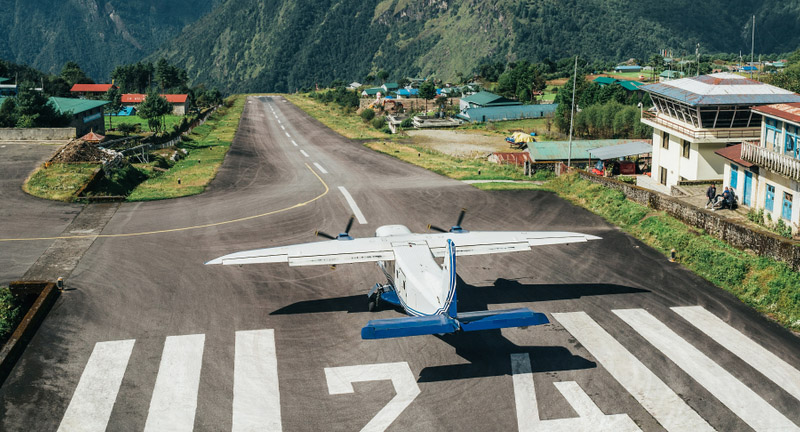
Shutterstock
Each of these airports, from the icy runways of Antarctica’s McMurdo Station to the cliff-perched Juancho E. Yrausquin Airport in Saba, presents unique and formidable challenges that test the limits of aviation. Their treacherous conditions, whether it be due to short runways, extreme weather, precarious geographical locations, or a combination thereof, demand the highest level of skill and precision from pilots. These airports not only exemplify the complexities and dangers inherent in air travel but also highlight the remarkable achievements of engineering and piloting in some of the world’s most inhospitable locations. They stand as a testament to the resilience and ingenuity of the human spirit in overcoming the challenges posed by nature and geography.
More From Bon Voyaged
-


Disney World Announces New Florida Resident Ticket Deal
-


Guadalajara Honored as 2022’s World Book Capital
-


Martha Stewart Joins Forces with Booking.com for Thanksgiving-Themed Farm Stay
-


This 60-Foot Natural Waterslide in North Carolina is AWESOME!
-


25 Most Spectacular Camping Sites in North America
-
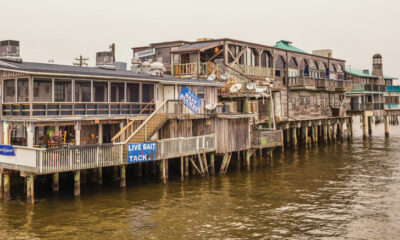

This Florida City has Been Named the Most Affordable Ocean-View…
-


Barack Obama Showcases the World’s Best National Parks in New…
-
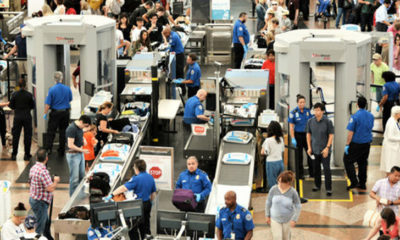
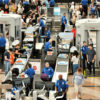
Thanksgiving Travel Sets Pandemic Record
-
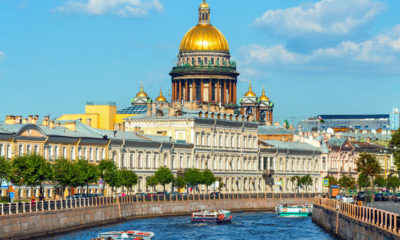

Norwegian Cruise Lines Cancels Stops in Russia due to Ukraine…
-


Celebrate Valentine’s Day at These Popular U.S. Destinations
-


Heading to the UK This Week? Prepare for Rail Strikes…
-


Disney Unveils New Ticket Deal to Ring in the New…

